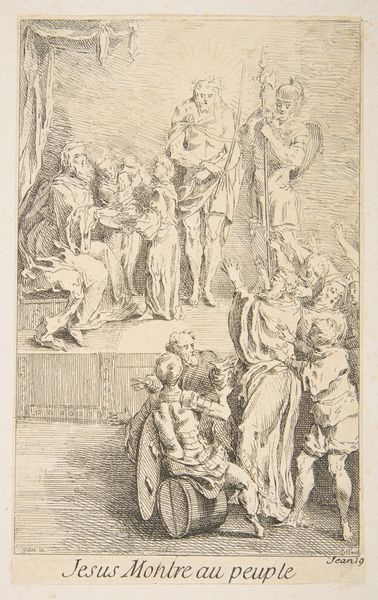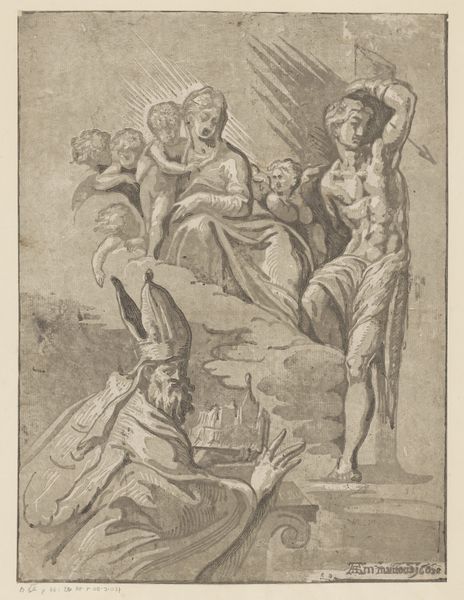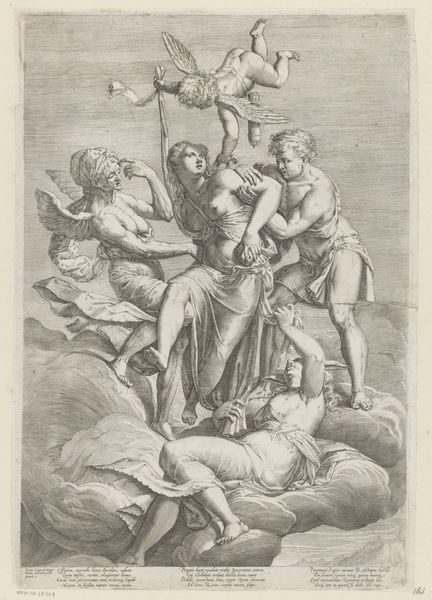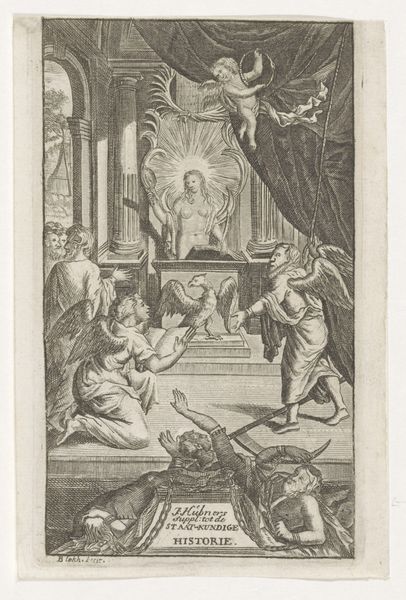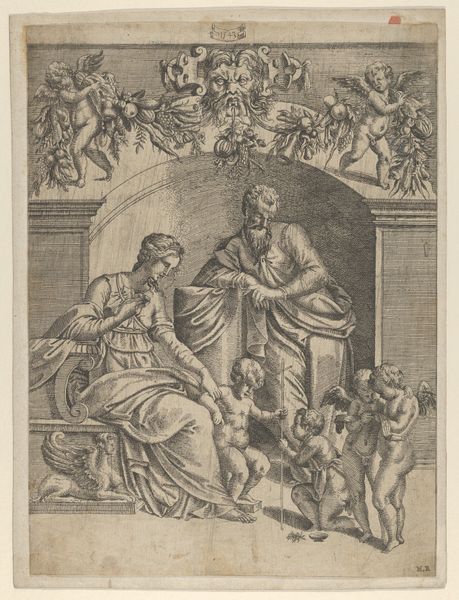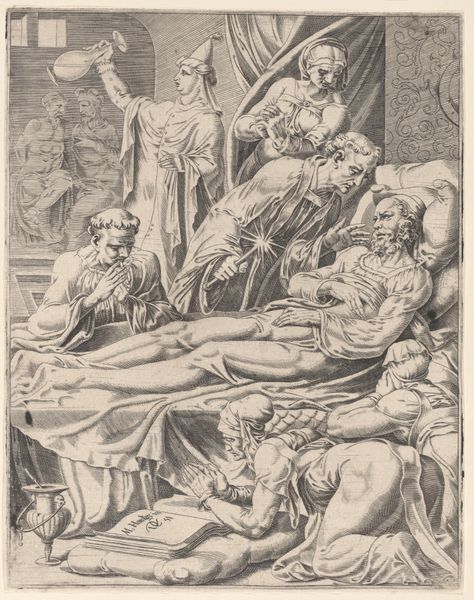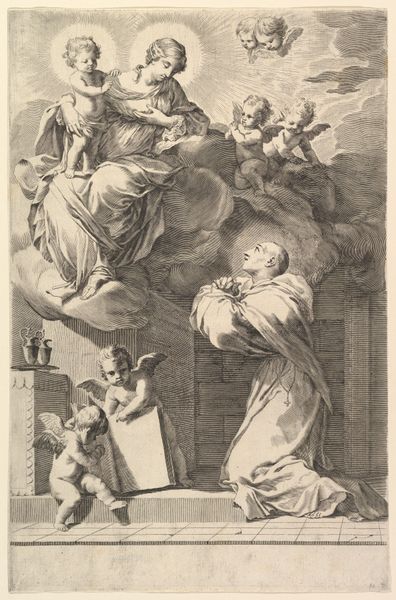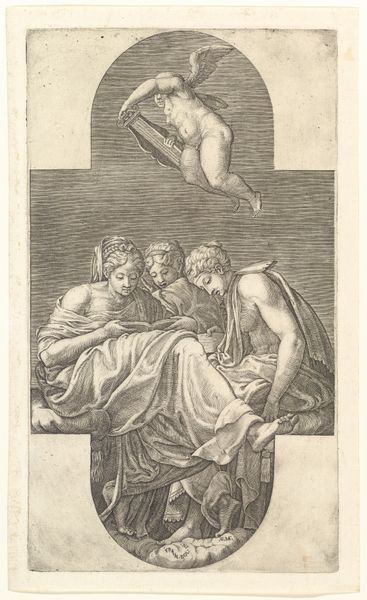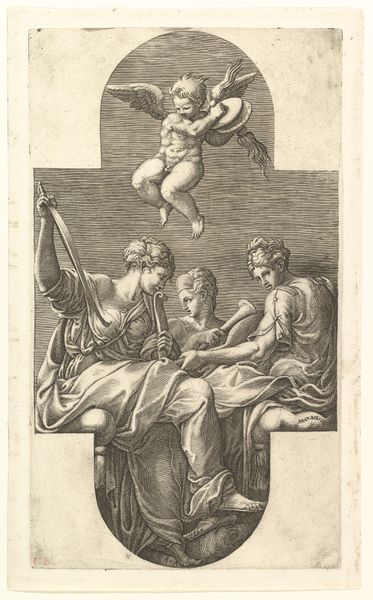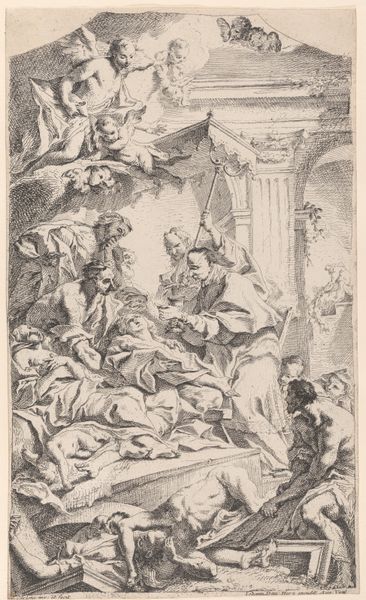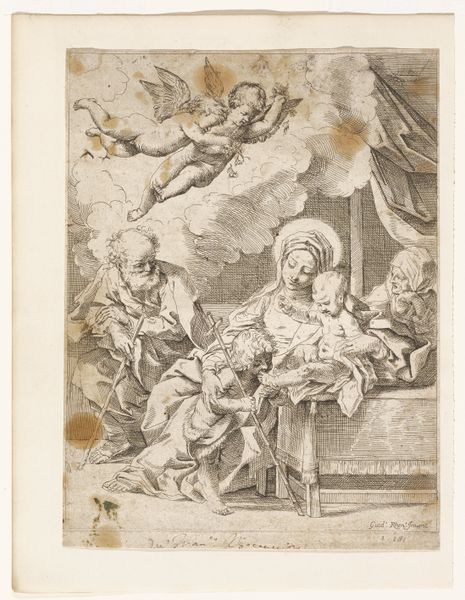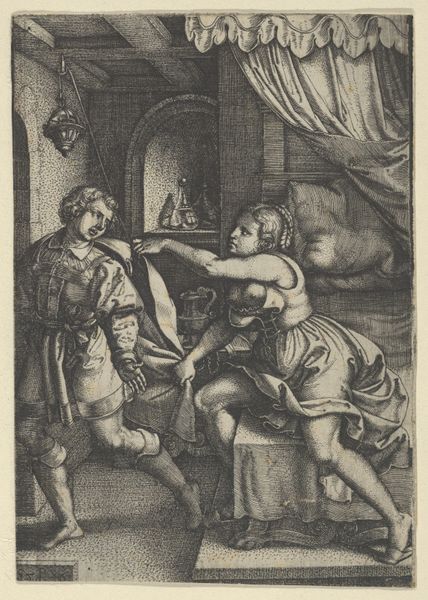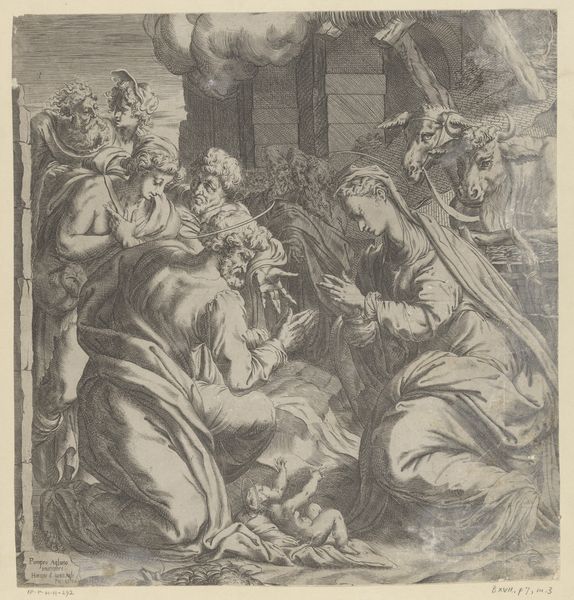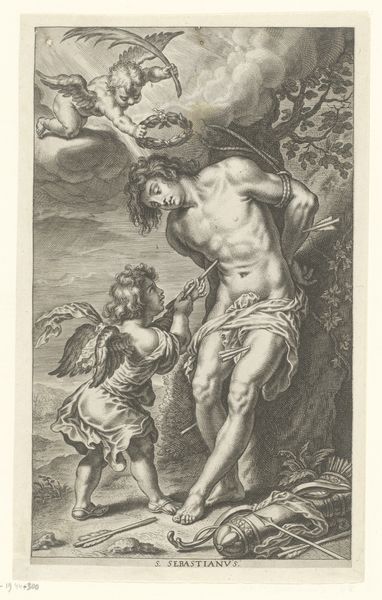
print, engraving
#
pencil drawn
#
aged paper
#
toned paper
#
light pencil work
#
baroque
# print
#
pencil sketch
#
old engraving style
#
figuration
#
personal sketchbook
#
pencil drawing
#
sketchbook drawing
#
pencil work
#
history-painting
#
engraving
Dimensions: height 520 mm, width 305 mm
Copyright: Rijks Museum: Open Domain
Curator: Here we have a 17th-century print entitled "Christus verschijnt aan geestelijke," which translates to "Christ Appearing to a Cleric," attributed to Antonio de San. It employs engraving techniques on what appears to be toned paper. What strikes you upon seeing it? Editor: The overwhelming feeling is ethereal. The monochromatic palette, combined with the hazy rendering of figures, creates a dreamlike scene. I'm curious about the choices in line weight and the visible texture of the paper itself. Curator: Precisely. The composition itself relies heavily on the contrast between the more densely hatched areas, creating depth, and the sparser sections which allow the toned paper to breathe. It draws your eye to certain points of emphasis. Note the directional lines guiding your gaze upward towards Christ. The symbolism of divine intervention is clearly at play. Editor: I'm equally intrigued by the tangible aspect of its creation. Looking closely, you can almost envision the engraver's hand carefully working the plate. I wonder about the conditions of that labor—the tools available, the environment in which this piece came to be. The print, as a multiple, implies distribution and accessibility, making the spiritual narrative available to a wider audience. Curator: Yes, and within that Baroque aesthetic, consider how the engraver has structured the pictorial space to maximize emotional and theological impact. The dramatic presentation of Christ, surrounded by a chorus of angels, serves to elicit a visceral response. A perfect illustration of spiritual fervor. Editor: Indeed. The texture, combined with the subject matter elevates a seemingly simple material and process to something profoundly evocative, tying it back to questions of faith, access, and production. I see it all as interconnected. Curator: A compelling argument. By deconstructing the form, we expose deeper meanings. It all speaks to the artist's mastery of conveying a complex spiritual message through meticulously crafted visual elements. Editor: And by examining the process and material reality, we find that the 'divine' itself has roots in labor, dissemination, and societal access. It reframes how we approach understanding art from this period.
Comments
No comments
Be the first to comment and join the conversation on the ultimate creative platform.
